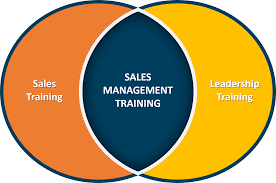|
KEY CONTENTS:
DAY 1
REVIEWING
YOURSELF AS A SALES MANAGER
1. Understanding your leadership
style
2. Identify your own sales
management style
3. Your personal development needs
4. Adapting to meet the needs of
your team
5. Know the difference between Sales Management
& Sales Leadership
SETTING
PRIORITIES
1. Organize yourself, your
priorities and your time
2. Assess the strengths &weaknesses
of your salespeople
3. Recruit and select high
performing salespeople
4. Lead and motivate your sales
team to achieve results in tough times as
well as good times
5. Prepare and deliver effective
and inspiring team meetings
6. Establish KPIs (key performance
indicators) for individuals and the team
as a whole
7. Conduct effective performance
reviews
8. Create your own development
journal and personal action plan to help
you, and your team
MARKETING
STRATEGIES
1. SWOT Analysis
2. SLEPT Factors
3. Market Segmentation
4. Time & Territorial
Management
5. SERVE Analysis
6. The 4 Ps
7. Critical Success Factors
8. Contingency Planning
9. Training & Development
10. Striking a Winning Balance between: Sales &
Service
DO YOU HAVE THE
RIGHT PLAYERS?
1. Sales strategies: (1)
Persuasion-intensive (2) Relationship-intensive
(3) Persistence
intensive (4) Expertise-intensive
2. Sales representative analysis
3. Sales representative: (1) Major
customer expectations (2) Requirements
to meet customer
expectations
SELECTING THE
BEST
1. Starting the interview
2. How to ask questions & what
questions to ask
4. Evaluating and selecting the
right candidates
MAKING THEM
BETTER
2. What is coaching – Do you coach
– How do you coach
3. Coaching techniques – Tactics
4. Barriers
5. Getting feedback
6. Counselling
7. Non-job-related issues – Job
related issues
8. Performance burnout problems
9. Diagnosis of sales effectiveness
EQUIPPING THE
TEAM
1. What must they do to succeed
2. How will you help them
3. How can they help themselves
FOCUSING ON THE
AVERAGE PERFORMER
1. What should you do: (a)
Observation (b) Performance prescription
(c) Performance analysis
MOVING INTO
THE SALES LEADERSHIP PARADIGM
1. The impact of leadership on performance
2. Managerial approach versus leadership style
3. Reinventing the effective leadership style
4. The different leadership styles and how it affects performance
5. The 3 Basic Leadership Styles & the 7 Tactical Leadership
Styles
6. The differences between the old and the new leadership styles
AN OVERVIEW ON
THE STRUCTURE, MECHANICS, SYSTEMS & STRATEGIES
OF PROFESSIONAL
SELLING THAT SALES LEADERS NEED TO KNOW TO COACH THEIR TEAM
1. The Organized Sales Presentation
2. Time and territory management
3. Sales Psychology - Selling to different customer personalities
4. Handling Questions & Objections
5. 20 Closing Techniques
Day 2
VISION, MISSION
& KEY RESPONSIBILITIES
1. Focus on the Company’s Vision
2. Business Process Re-engineering
3. Strategic Steps towards Progress
PROBLEM SOLVING
& DECISION MAKING
1. What is decision making & problem-solving in leadership?
2. How to solve a problem as a sales leader?
3. Guide lines to help you solve problem
4. How to improve decision-making and problem-solving skills
CHANGE MANAGEMENT
1. Change Management Process
2. Strategies for Managing Change
3. The 7 R’s of Change Management
4. The 5 Activities of Change Management
UNDERSTANDING
& MOTIVATING EMPLOYEES
1. Ways to motivate employees: Financial & Non-Financial
Motivation
2. Employee personality assessment
3. Integrating the different personality
styles for effective interaction
4. Building a cohesive team
EFFECTIVE
MANAGERIAL & SUPERVISORY SKILLS
1. Leadership Efficiency: Attitude, Professionalism &
Organization
2. The 3 Power Approach - Leveraging, Pro-Active Attitude &
Discipline
3. Focusing on the human side of management
4. How to communicate & manage persuasively
5. How to be a great coach?
6. Teaming-up Employees
MANAGING EMPLOYEES’
PERFORMANCE
1. Effective Supervisory Skills from directing, coaching,
supporting to delegation
2. Shaping up problem workers
3. Praise & Rewards
4. Providing On-the-Job Training
5. Giving constructive criticism
6. Performance appraisal
REVIEWING,
RESTRUCTURING & DESIGNING YOUR STRATEGIC SALES MANAGEMENT PLAN
1. What you need to do after the seminar
2. Set priorities & deadlines
3. Take action
|



